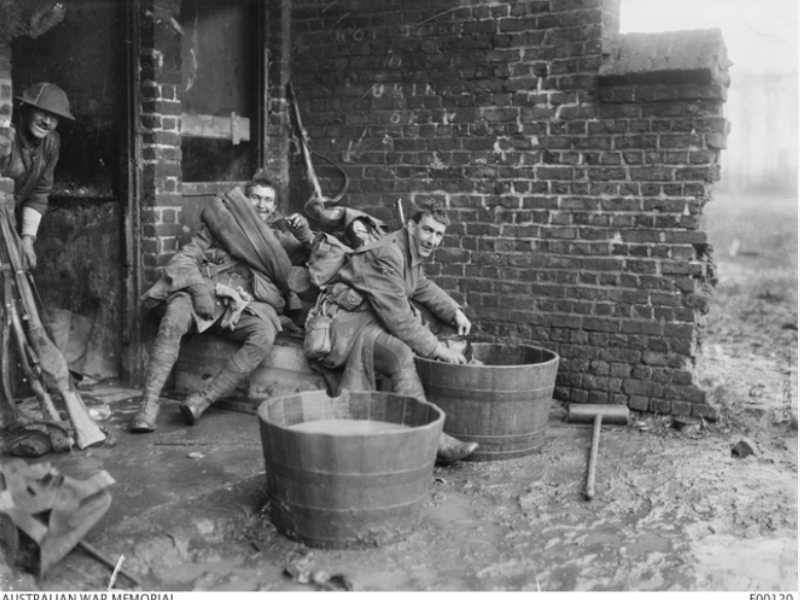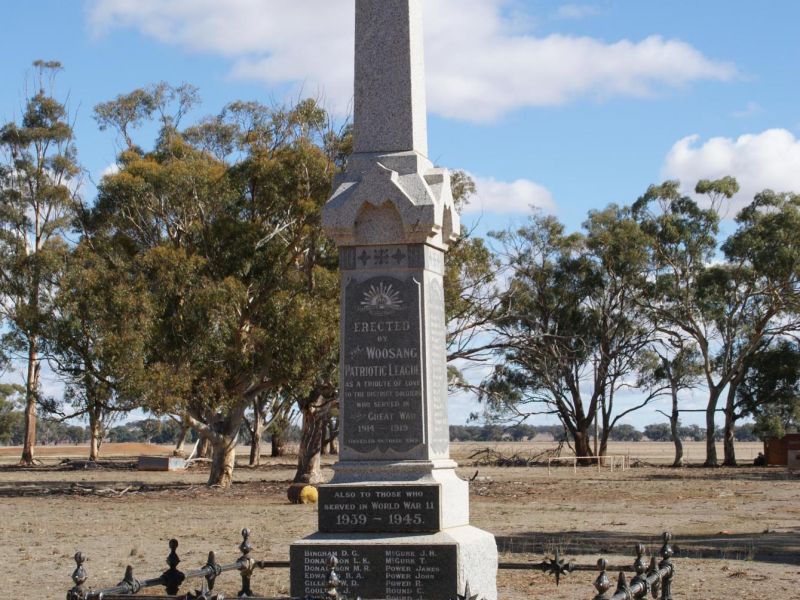Corporal Robert Paterson, 38th Battalion, AIF
Robert Paterson was born in 1894, the eldest of nine children of John and Jane Paterson of Buckrabanyule in northern Victoria. After attending school at nearby Woosang, he worked on the family property as a crop farmer and grazier.
In February 1916, just a few months after his 21st birthday, Paterson enlisted in the Australian Imperial Force at Bendigo.
After four months training at Epsom Racecourse in Bendigo and Campbellfield Military Camp in Melbourne, he embarked for the training camps in England as an original member of the newly raised 38th Battalion. By then he had been promoted to corporal in the battalion’s machine-gun section.
Once in England, Paterson spent five months training on the Salisbury Plain in Wiltshire before sailing for France in November 1916. The 38th Battalion entered the line in the relatively quiet sector near the town of Armentières, where it spent the bitterly cold winter acclimatising to conditions on the Western Front.
While this sector was considered quiet compared to others, the 37th Battalion was involved in a program of aggressive patrolling and trench raiding to prevent the German army recovering from the hammering it had taken on the Somme.
In February 1917, 800 men from the 37th and 38th Battalions formed a composite “raiding battalion” and started training for a major trench raid on the Germans opposite the Australian position known as Pont Ballot.
Paterson formed part of the raiding party that hit the German trenches on the night of 27 February. His raiding team successfully entered the enemy position, took prisoners, and inflicted casualties. The team achieved its objectives and returned to the Australian trenches, where Paterson volunteered to assist stretcher-bearers in retrieving the wounded.
German artillery fell on the men as they rested in no man’s land, and on the return journey a shell exploded nearby, killing Paterson instantly. His body was taken to Armentières and buried at the Cite Bonjean Military Cemetery.
He was 22 years old.
Writing to Paterson’s parents, his platoon commander described him as “one of my most solid best men” who was “loved by the men of his section … He was a fine soldier and good comrade [who] gave his life”.
Paterson’s grieving family inserted the following epitaph in the local newspaper:
We mourn for you, dear Rob,
Though not with outward show.
For those who mourn sincerely,
Mourn silently and low.
Aaron Pegram, Historian, Military History Section
Image: Soldiers washing their gum boots outside the gum boot store at Houplines, near Armentieres. Infantry and working parties were issued with dry boots from this store before going into the line, and on returning, handed them back, after washing off the mud in the tubs provided for the purpose. January 1917.

 Australian War Memorial
Australian War Memorial